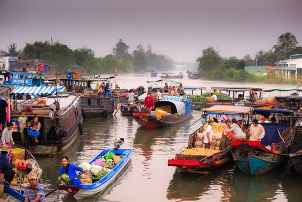Overview

The confluence of unsustainable food systems, insufficient rural development, and climate change threaten the food security, diets, and nutrition and health outcomes of millions around the world. At present, unsustainable food systems contribute a third of total global greenhouse gas emissions (GHGe) and degrade ecosystems contributing to significant deforestation and subsequent biodiversity loss. In tandem, climate change is threatening crop yields, and the nutritional quality of crops, and interrupting other critical parts of our food system. Furthermore, populations living in poverty—with 80% of the world’s poorest residing in rural areas—are disproportionately affected without sufficient safety nets and access to sufficient, safe, and healthy diets. Taken together, food security of rural populations that depend on threatened natural resources for their diets are at significant risk. Up to 183 million additional people are estimated to be at risk of hunger linked directly to climate change by 2050: an alarming projection with more than 2.3 million people already experiencing food insecurity.
Food Flows is a research project that seeks to build and contribute to an evidence base that informs action on alleviating food insecurity and building environmentally sustainable food environments of vulnerable populations. Achieving the dual goals of human health and planetary well-being will require a major transformation of agricultural systems and dietary patterns. Beyond just merely producing food for everyone, for food systems to be functioning in a not only efficient but equitable way, they need to be able to support sustainable and healthy diet for the world’s population. Food Flows centers rivers and specifically riparian communities and their reliance on these bodies of water as livelihoods, food and as food environments themselves. The collaborative research incorporates multi-disciplinary methods to understand and characterize individual factors and food environments that shape food choice and diets of these communities.
A River in Transition:
Understanding the health and environmental sustainability of food environments and diets of Lower Mekong River communities in Cambodia
This study puts at the center communities vulnerable to climate change who are reliant on localized, sub-national (the Mekong River and Ton Le Sap Lake) food ecosystems as well as broader national, yet still local, food systems. The study seeks to understand and characterize individual factors and food environments that shape food choice and diets of these communities. The study will develop novel tools to assess food environments’ health and environmental sustainability and evaluate rivers themselves as multifactorial, dynamic food environments. Additionally, it will evaluate how decision-making processes that govern the Lower Mekong Region can influence the food environments of river communities in Cambodia.
Project Team
This work is undertaken by an interdisciplinary team of researchers and public health practitioners, led by Dr. Swetha Manohar, Shauna Downs at Rutgers University and Dr. Serey Sok at the Royal University of Phnom Penh. The project team also includes faculty members Dr. Jessica Fanzo, Dr. Veasna Sou, Nyda Chhinh, and PhD student, Lais Miachon. The study has been consultatively designed with inputs from stakeholders from food security and nutrition civil society and the Royal Government of Cambodia.